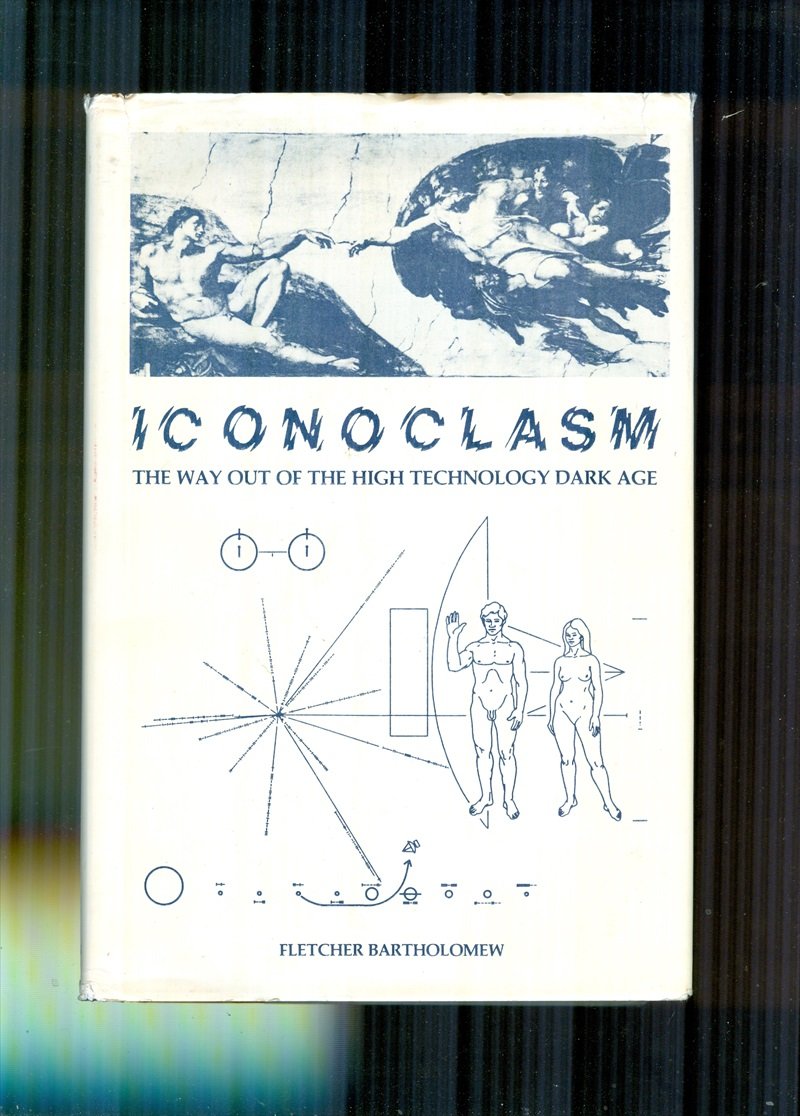

 |

|

Sold Out
Book Categories |
Started at MIT, and fifty years in the writing, its time has come! Fear not! Icons here are revered persons, their images, beliefs, or ideas, not the symbols on your computer's monitor. High Tech is not responsible for our dark age. It is only caught up in the stagnation of an age that has acquired its name, as we all are. This is a reference work for graduate students' reading lists, belonging next to William A. Henry III's In Defense of Elitism (Doubleday Anchor Books, 1994), on the shelves of all libraries for thoughtful adults who want to know what is causing our society to move toward barbarism under totalitarian government, and what must be done to remove that cause. Today it is widely believed that science has made religion obsolete. Science has shown that myths should be recognized as myth (recognizing also the legitimate function of myth), but it has not replaced the religious message offered by all world religions. As Thomas a Kempis wrote, Seek ye not to know who said this or that, but take note of what has been said. We humans are given a mind that is capable of rational thinking. It is adequate for our life in this world of three dimensions and time. When rational thought is followed honestly and courageously, it always leads to the conclusion that the belief upon which the New Religion of Scientific Humanism is founded -- its belief as to what the human being is -- is untenable by a rational mind. It is not surprising that the same conclusion reached through rational thinking is the basis for real religion: the human being is not capable of knowing ultimate reality in any way that can be communicated to others. Such knowledge can be arrived at through personal religious experience; being ineffable, however, it cannot meet science's requirement that it be amenable to discursive treatment in words, in sounds or symbols; hence it is beyond the reach of scientific consideration. Nor can religious organizations, or writers, give us ultimate truth. Organized religion's primary mission is to guide us, to instruct us in how to live in a way that will qualify us for acquiring such knowledge by becoming willing to accept its ever-willing entry into us when we are ready to receive it, i. e., back to Thomas a Kempis. In 1877, Ernst Haeckel proclaimed that the human being is just a combination of chemical elements given special treatment (page viii). But we cannot define ourselves, for our definitions all reflect our own nature and limitations. We cannot even define any chemical elements except, as we do, in terms of their relationships to other elements, equally unknowable. This is description, not definition. In technical parlance, our definition of ourselves is a function of the thing being defined, hence a reflection of ourselves. The present period fits the classic description of a dark age: knowledge and wisdom solidly established in the past is being ignored, forgotten or denied. Our dark age is the creation of the New Religion of Scientific Humanism. That is what Robert Maynard Hutchins called the belief that reality does not exist beyond the reach of physical science, i. e., the human mind. Others have had a different name for the same belief. Today, scientists are returning to their former position, telling us that much of importance to human life lies beyond our comprehension. The icons of The New Religion of Scientific Humanism, governing our judgment and decisions today, deserve no veneration. They are demonstrably false. They came onto the scene primarily as a result of the gradual change in the belief as to what the human being is. That change took place as the spirit of The Renaissance matured. Guiding social thinking through the years, it allowed this pseudoreligion to usurpe the authority of legitimate religion. Nikolai Berdyaev was correct. We are now living the end of The Renaissance. The good news is that today Science itself is discovering its error. The author agrees with those who see a new renaissance on the horizon. The wisdom and knowledge of the past that dealt with how best to live a human life has always been the heritage, the legacy, of every civilized generation, which makes it unnecessary for each to "reinvent the wheel," so-to-speak, in the important matter of living a human life. Ignoring, forgetting, or rejecting it, we have condemned ourselves to living in a dark age. We are still the same human being. The human being who cannot define itself. As a part of the universe, we cannot define it, either. We can only describe it in our own terms, which reflect ourselves. As early as the 16th century, Leonardo da Vinci said Science can observe [hence describe], but not explain. We must overcome the hubris inspired by the popular icons of the New Religion of Scientific Humanism, and abandon them, in order to expand into the future, as it draws us inexorably into itself. That will be a real advancement of science.
Login|Complaints|Blog|Games|Digital Media|Souls|Obituary|Contact Us|FAQ
CAN'T FIND WHAT YOU'RE LOOKING FOR? CLICK HERE!!! X
 You must be logged in to add to WishlistX
 This item is in your Wish ListX
 This item is in your CollectionIconoclasm
X
 This Item is in Your InventoryIconoclasm
X
 You must be logged in to review the productsX
 X
 X

Add Iconoclasm, , Iconoclasm to the inventory that you are selling on WonderClubX
 X

Add Iconoclasm, , Iconoclasm to your collection on WonderClub |